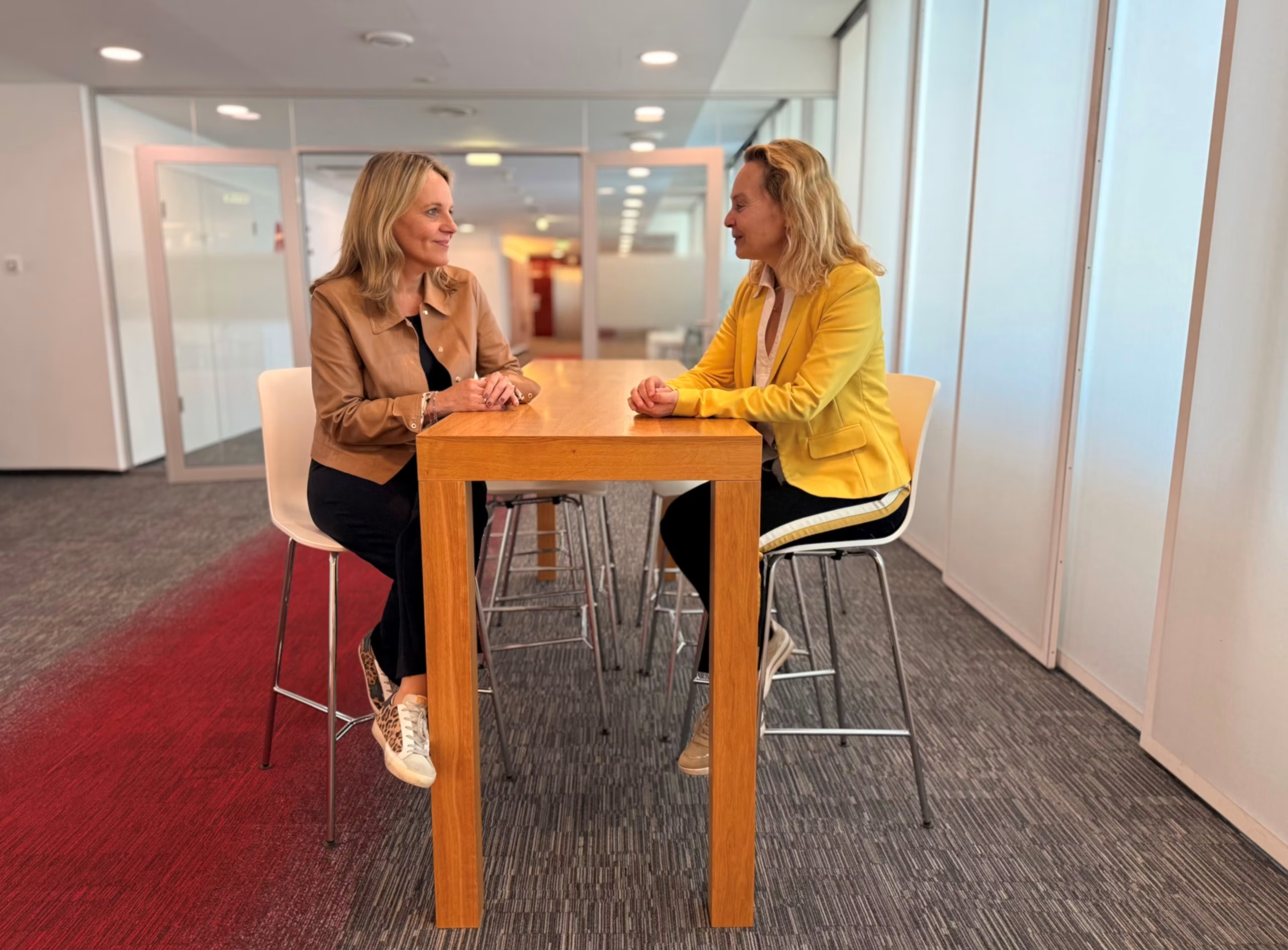I talk to Natascha Kantauer-Gansch, CCO Consumer A1, Telekom Austria AG about empowerment.
Empowerment is a matter close to Ms. Kantauer-Gansch’s heart.
“A lot has changed in the A1 Group’s corporate culture in recent years – towards more openness, honest dialog and genuine empowerment,” Ms Kantauer-Gansch begins our conversation. Employees feel listened to and are allowed to openly address critical issues. In our company today, exchange is seen as essential in order to overcome challenges together. Instead of one-sided presentations, meetings today are deliberately designed in a dialogical way: Short impulses, plenty of room for discussion. This new openness is the result of a cultural change – driven by managers who also exemplify change themselves.
Empowerment is not a soft skill, but a real success factor: it enables faster, better decisions and helps our organizations to adapt to dynamic market conditions. Our managers see themselves as part of this change. “Purpose – both at company level and on a personal level – is important here. My own drive: “To support people in recognizing their strengths and developing along these strengths,” says Ms Kantauer-Gansch. Ms. Kantauer-Gansch shares this understanding of purpose and development with other managers – with sometimes profound effects: some left the company, others flourished within it.
The personal examination of one’s own “purpose” requires courage and honesty – even if the process is well supported in our company. Ms Kantauer-Gansch shares a specific example: “We have created the “Be on Stage” format from the reflection process: a voluntary development program for employees without a management function, for example from call centers or stores, who often have overlooked potential. Unlike traditional management programs, it aims to make talents visible, promote them individually and create real development opportunities.
This program focuses on genuine voluntarism – no standardized measures, but rather formats that are offered and further developed on an ongoing basis. It is also crucial that I, as a manager, am not just present symbolically, but with genuine interest and commitment. It’s not about self-promotion or social media posts, but about a real, lived understanding of leadership – close to the people.
You are a true role model for empowerment, how do you live this in your everyday life?
“My interest in people is deeply rooted. I want to know how others are doing – both professionally and privately. I am open to honest conversations and want to offer support if someone is not doing well,” says Ms. Kantauer-Gansch, describing her approach. This attitude is part of her management philosophy, which she also actively passes on to her team.
Ms. Kantauer-Gansch talks about her long-standing relationship with A1, which is based on shared values, genuine development and a clear, people-centric strategy. The four core values of the Group strategy
- Empower – clarity through a strong vision and framework conditions that enable employees to make self-determined decisions.
- Enable – A living learning culture that encourages the courage to try things out, experiment and allow mistakes. At A1, we actively exemplify this learning process and inspire each other.
- Connect – cooperation within the group, working together as a team.
- Empathize – Genuine care and attention for the person behind the employee, with a holistic view of personal and professional life situations.
A central aspect of her management style is empowerment through trust, equality and the conscious selection of team members“who can challenge, complement and even surpass me professionally and personally. I rely on people with courage, expertise and the right mindset, who are not afraid to disagree and lead discussions,” explains Ms. Kantauer-Gansch.
As many challenges can no longer be solved with experience from the past, courage, openness and the ability to make future-oriented decisions are required. For Ms. Kantauer-Gansch, it is crucial to surround herself with competent people and to take their expertise seriously.
For Ms. Kantauer-Gansch, genuine listening in leadership is also a skill that is often neglected in today’s society. “Employees don’t expect immediate feedback, but rather attention and reflective feedback first. I make a conscious effort to listen, ask questions and include different perspectives – especially when making strategic decisions”.
The aim is to create a uniform, tangible culture within the company in which departmental changes do not feel like a change of company.
Ms Kantauer-Gansch reports a concrete example, namely a major organizational change that she carried out last year. In a transformation process, we switched from a product-oriented structure to a customer-focused organization – with real added value for the customer. I started this process with a small, dedicated core team before my Direct Reports were later involved. Despite initial uncertainty and power shifts, everyone was actively involved. The joint development ensured strong identification, a high level of acceptance and a successful, unifying roll-out of the new structure. The positive feedback in subsequent employee meetings confirms that the path, as challenging as it was, was the right one.
Finally, she emphasizes how important it is to be able to reflect – ideally with someone outside the organization. “Because leadership doesn’t mean knowing everything, it also means learning in the process, falling down, getting up again – and growing together with the team in the face of challenges,” she summarizes.
We address the close connection between empowerment and psychological safety.
An open corporate culture only works if employees have the necessary framework to be able to express themselves honestly. The decisive factor is how criticism and different opinions are dealt with – whether there is room and appreciation for them.
Psychological safety plays a key role here. It does not mean traditional job security, but trust in dealings, processes and communication. If this is lacking, valuable potential is lost – both in terms of creativity and collaboration.
This is why Ms. Kantauer-Gansch places great value on transparent communication, especially in change processes. Again, she shares a concrete example: the Female Empowerment Program. “I am very proud that around 100 women have already taken part,” she says. Despite various hurdles – such as family commitments or self-doubt – almost all participants develop further within six months, supported by training, community and targeted support. Young managers are also given special support.
She is also proud of the fact that many women now take on management roles and that shared leadership is actually practiced in the company. This culture of openness and support is noticeably changing the company.
“We are on the right track, even if there are still subcultures here and there, but the growing openness and support that I myself have experienced over many years encourage me to continue on this path consistently,” says Ms. Kantauer-Gansch. It is important to her that managers are allowed to live their own style as long as they promote an appreciative, open culture.
Finally, we talk about the corporate culture, which has changed significantly: from a technology-centric to a product-centric to a customer-centric company.
This transformation is also visible from the outside – for example through positive developments in employer branding and employee engagement. With the “Create a Smile” cultural program, Ms. Kantauer-Gansch wants to ensure that practicing friendliness works from the inside out – and that customers are also emotionally engaged. It is crucial to hire people with the right attitude, especially in management positions. Feedback culture and humanity are central to her approach.
Your stress tip:
Ms. Kantauer-Gansch names two personal strategies for dealing with stress: regular physical exercise, such as running or walking the dog, and short mental exercises for relaxation. She does the latter with the help of an app that offers visualization and breathing techniques in just one to two minutes. The combination of physical activity and mental time-out helps her to cope better with professional and private challenges.





